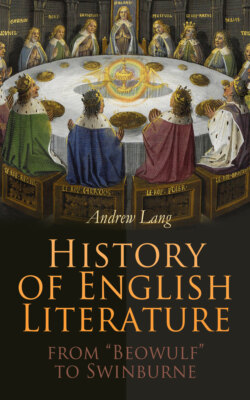Читать книгу History of English Literature from "Beowulf" to Swinburne - Andrew Lang, Robert Kirk - Страница 40
На сайте Литреса книга снята с продажи.
Political Songs.
ОглавлениеTo politics as well as to love and the delights of spring the Muse of the people was alive. The popular hatred of Richard of Cornwall, brother of Henry III, expressed itself thus after the battle of Lewes (1264). The English is here but slightly modernized:—
Be thou lief, be thou loth, Sir Edward,
Thou shalt ride spurless on thy lyard
All the right way to Doverward
Shalt thou never more break forward,
Edward, thou did'st as a shreward,
Forsook thine uncle's lore,
Richard, though thou be ever trichard
Trick shalt thou never more.
(A lyard is a grey, spoken of a horse,
The Dinlay snaws were ne'er so white
As the lyart locks o' Harden's hair,
says the ballad of "Jamie Telfer".)
The English view of Wallace, the patriot knight of Scotland, cruelly executed, is thus set forth:—
To warn all the gentlemen that be in Scotland
The Wallace was drawn, thereafter hanged,
Beheaded alive, his bowels burned,
The head to London Bridge was sent,
To abide
After Simon Frysel,
That was traitor and fickle
And known full wide.
(Frysel or Fraser; a later Simon Fraser, Lord Lovat of 1745, was traitor and fickle enough.)
